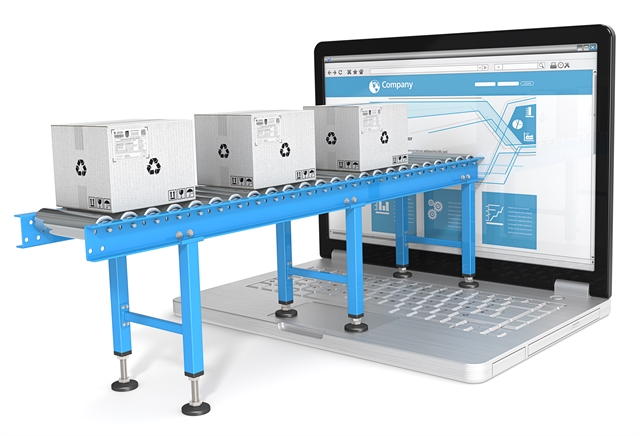
HOW MANUFACTUERS CAN BENEFIT FROM EDI
Many manufacturers today face pressure to adapt to the latest technologies. While you should be hesitant to embrace every new fad, electronic data interchange (EDI) is a long-standing solution that has the potential to advance your organization for the better.
B2B EDI involves replacing traditional communication methods with a computer-to-computer approach. (You can learn more about EDI by reading this blog as well.) This means communication previously completed on the phone or through email is now completely automated, improving accuracy and efficiency.
MANUFACTURING EDI BENEFITS
There are plenty of advantages to EDI implementation for any organization. Manufacturers in particular may see several advantages from this technology.
INTERNATIONAL COMMUNICATION
Many manufacturers need to communicate with customers and distributors across the globe. However, coordinating phone calls and emails over multiple time zones can be challenging. Often, manufacturers need 24/7 staff or a waiting period while the orders are in limbo until they are fulfilled.
Manufacturing EDI eliminates these concerns. Orders are automatically communicated from the sender and imported into the manufacturing process without human intervention. This reduces costs while cutting down on wasted time.
REDUCED HUMAN ERROR
Manufacturers, especially for just-in-time manufacturing, need orders to be delivered quickly and correctly. Although some companies can use traditional communication effectively, any human intervention increases the risk of error. Manufacturing EDI reduces these potential risks.
GROWTH OPPORTUNITIES
In today’s economy, many manufactures face a common problem: Sales are growing to the point where they can’t hire and train personnel fast enough. Even with a fully-staffed operation it can be difficult to keep things moving.
Manufacturers who want to expand should integrate EDI. It removes struggles often faced by growing manufacturers. While other parts of the process may need to be changed to adapt to the growing leads, B2B EDI can handle any amount of orders processed through the channel.
In addition, because many large organizations operate exclusively over EDI, not using EDI may limit a manufacturer’s expansion opportunities. Many industries already have a Value Added Network (VAN), or a set of standards established for use. Instead of creating a new system, manufacturers new to B2B EDI should establish compliance with the current standards or manufacturing EDI system. This opens up business transactions to new customers and distributors.
MANUFACTURING EDI INVESTMENT
While many manufacturers have success using B2B EDI in their operations, there are investments associated with EDI implementation.
FINANCIAL PRICING
VANs are a great tool which allow companies to trade data between related systems. This tool requires a recurring financial cost which ranges from three to twenty cents per document. Often, each order requires three to four documents, so these costs can quickly add up. While other forms of manufacturing EDI do not require recurring document fees; they do require initial mapping fees, software to translate, hardware resources, and on-going maintenance.
LABOR PRICING
As with any new technology, the learning curve which comes with EDI implementation may slow down overall business processes for a short period of time. Current employees and customers need training. Sometimes, additional personnel are needed to manage the technology. During the transition, it may be necessary to maintain the previous system and the new B2B EDI communication.
Despite the drawbacks, however, EDI implementation saves money long-term.
SHOULD YOU TRY MANUFACTURING EDI?
Like any new technology, it is important to analyze your organization’s needs before jumping in.
To begin, ask yourself:
- What types of manual entry will not be required?
- How much time or money will be saved by eliminating the manual process?
- What types of growth opportunities will be possible without the additional human processing time?
Manufacturers should verify transactional load and cost savings from a manual entry standpoint to justify the implementation and on-going investment.
FIND A MANUFACTURING EDI PARTNER
Need help deciding if B2B EDI is worthwhile for your organization? Our team of manufacturing EDI experts are ready to assess your situation and help you get started. Contact SWICKtech today to see how we can help.



